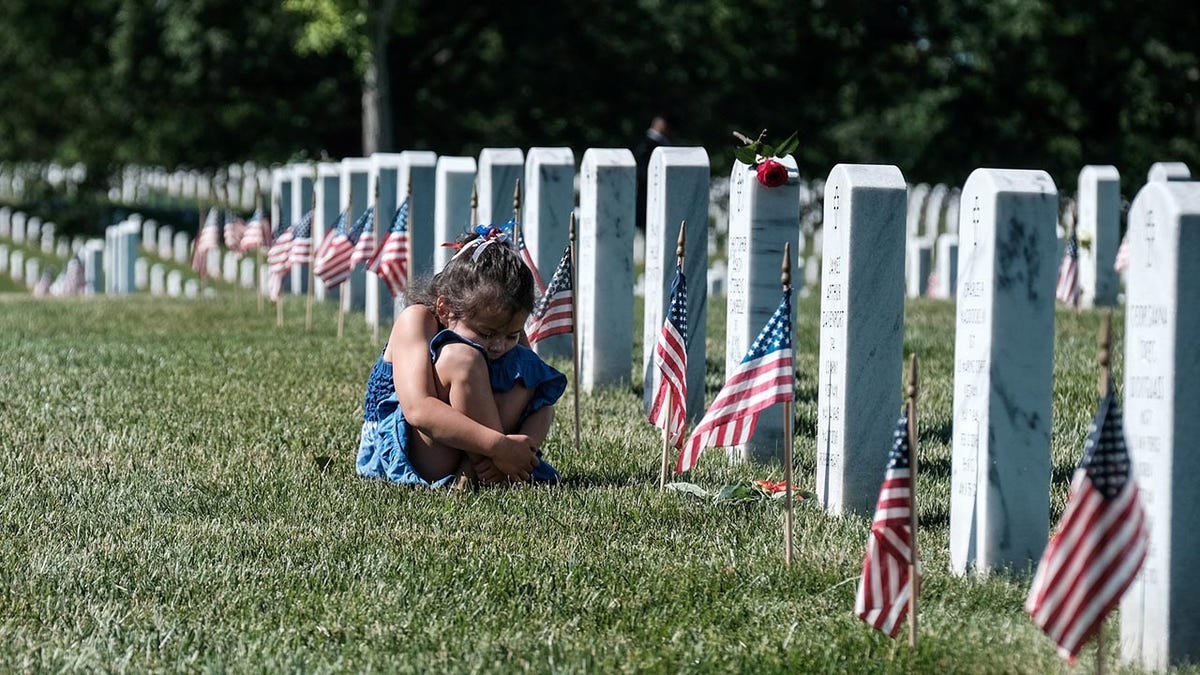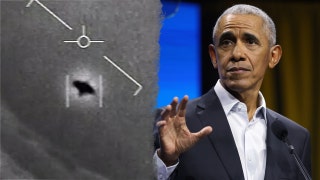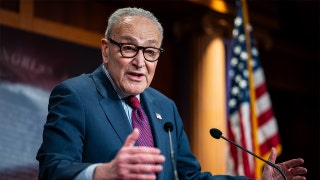Freedom isn't free: Brian Kilmeade
Fox News host Brian Kilmeade gives viewers a quick history lesson on Memorial Day as a stark reminder of the ultimate sacrifice on 'One Nation' Saturday night.
Fox News host Brian Kilmeade shared a brief history lesson of Memorial Day, honoring the service members who made the ultimate sacrifice on Saturday's "One Nation."
BRIAN KILMEADE: You may be preparing to fire up the grill, enjoy time with family and friends, especially after the last two years. Really appreciate the three-day weekend, right? It's a stark reminder that freedom isn't free, though, because it's about Memorial Day. It honors the men and women who gave the ultimate sacrifice protecting the country. The holiday dates back more than a century to the deadliest conflict ever fought on American soil. Here's a quick history lesson. In 1865, the Civil War came to an end, but not without devastating American families, with more than 600,000 men killed in the bloodbath. Grieving mothers, daughters and wives tended to the graves of fallen soldiers, decorating them with flowers, wreaths and flags.
MEMORIAL DAY BY THE NUMBERS: FACTS ABOUT THE SOLEMN AMERICAN HOLIDAY
The brutal conflict moved Union Army Maj. Gen. John Logan to establish Decoration Day on May 30, 1868, which could later be known as Memorial Day. That peaceful day chosen because it wasn't associated with any anniversary of any particular battle. It was for all of them. At the first major ceremony held at Arlington National Cemetery, the general urged Americans to decorate the graves with springtime flowers, proclaiming, "Let no vandalism of avarice or neglect, no ravages of time testify to the present or to the coming generations that we have forgotten as a people the cost of a free and undivided republic."

A girl reacts in front of a headstone during Memorial Day as visitors honor veterans and those lost in war at Arlington National Cemetery, Virginia, U.S., May 31, 2021. REUTERS/Michael A. McCoy (Reuters)
CLICK HERE TO GET THE FOX NEWS APP
…
In the late 1860s, towns and cities coast to coast were hosting parades, visiting cemeteries, memorials and reciting prayers for the fallen. President Lyndon B. Johnson would later designate Waterloo, New York, because it held an annual community-wide event, closing businesses to decorate graves dating back to 1866. After World War I, the Day of Remembrance extended to memorialize soldiers who died in all wars. One-hundred years after Decoration Day was declared, Congress passed the Uniform Monday Holiday Act, officially making Memorial Day a national holiday — the last Monday in May, creating a three-day weekend. Today, several states in the South still observe Confederate Memorial Day on a separate day honoring Southern soldiers with church services and Civil War reenactments. Today's generation has a new appreciation because they have known nothing but war for the last two decades. On Monday, we are all encouraged to pause for one minute at 3 p.m. your local time, reminding us that freedom isn't free. And one day we all stopped to keep the memory alive of more than 1.2 million men and women who made that ultimate sacrifice.









































